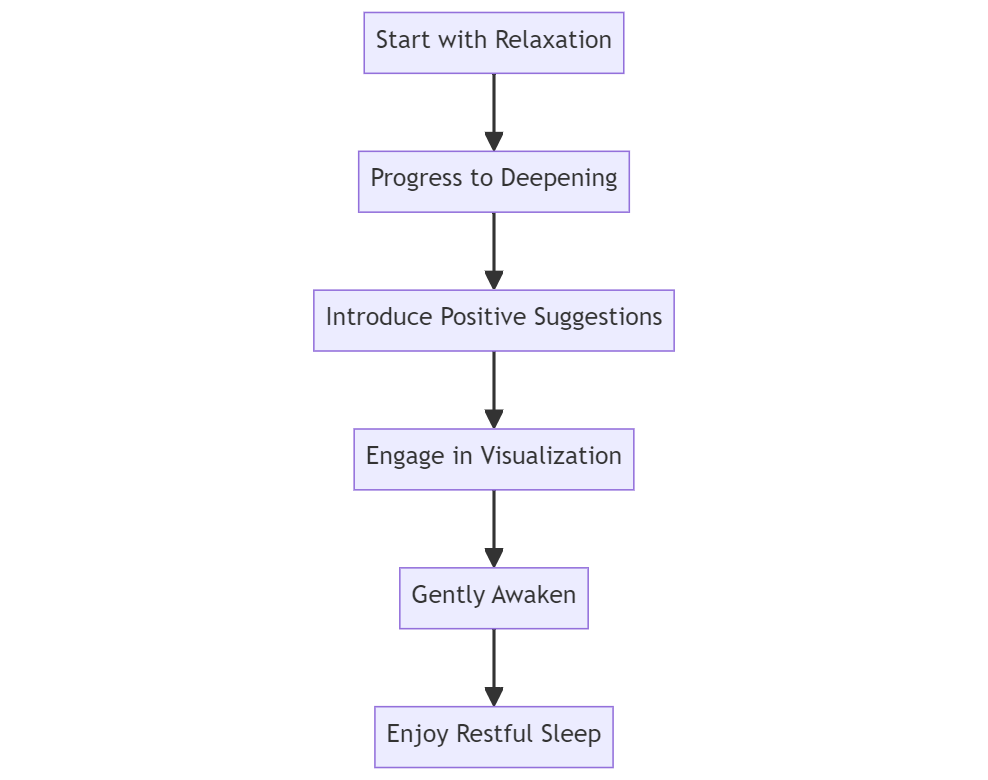Understanding Insomnia: The Enemy of Restful Nights
What you can expect from this article—and how I can help you:
If you’ve been struggling with sleepless nights, waking up too early, or just can’t seem to quiet your mind when your head hits the pillow—you’re in the right place. This article is here to help you understand why insomnia happens and, more importantly, how hypnosis can gently guide you back into the restful sleep your body and mind need. You’ll learn how hypnotherapy works on a deeper, subconscious level to calm your nervous system, quiet inner chatter, and retrain your mind to welcome sleep naturally.At Seacoast Hypnosis, I specialize in helping people like you overcome insomnia—not just with surface-level sleep tips, but with a personalized, empowering approach that gets to the root of the problem. After reading this, you’ll have a clear picture of how hypnosis can ease stress, shift your mindset, and help you create healthy sleep habits that actually last. Whether your insomnia is fueled by stress, overthinking, or long-standing patterns, we can work together to rewire your sleep story—so you can finally get the rest you deserve. And when you’re ready, I’m just a phone call away.
Insomnia plagues countless individuals, manifesting as difficulty falling asleep, staying asleep, or waking up too early. The repercussions of this sleep disorder extend into daytime fatigue, mood disturbances, and impaired performance. Unraveling its complexities is the first step towards reclaiming the peace of slumber.
Hypnosis for Insomnia: The Mind’s Healing Power
Hypnotherapy emerges as a beacon of hope for those battling insomnia. This therapeutic technique delves into the subconscious, planting seeds of calm and relaxation that can blossom into steady sleep patterns.
The Mechanism Behind Sleep Hypnosis
Sleep hypnosis operates by guiding the individual into a trance-like state. In this heightened focus, the mind becomes more open to suggestions. Hypnotherapists utilize this susceptibility to introduce thoughts that promote sleep, such as visualizing tranquil scenes or instilling beliefs of being able to sleep through the night.
Christine Larkin at Seacoast Hypnosis excels in using hypnosis for personal growth and transformation. Through hypnosis, Christine aids clients in focusing their minds and reprogramming their subconscious with empowering beliefs, leading to meaningful behavioral changes. Her expertise includes guiding clients toward greater control over their lives.
The Journey to Sleep: A Hypnotic Process
- Relaxation: The session begins with deep breathing and muscle relaxation techniques to soothe the body.
- Deepening: Through guided imagery, the person is led to a deeper state of relaxation, akin to the moments before sleep.
- Suggestion: Positive affirmations about sleep are introduced to reframe the individual’s mindset towards sleeping.
- Visualization: Imagining peaceful scenarios further entrenches the mind in a state conducive to sleep.
- Awakening: Gradually, the individual is brought back to full consciousness, carrying the subconscious suggestions with them.
The Evidence: Hypnosis as a Sleep Aid
Research substantiates the efficacy of hypnosis in improving sleep. Studies indicate enhancements in sleep duration and quality, particularly in individuals refractory to other treatments.
Christine Larkin of Seacoast Hypnosis excels in using hypnosis to get a better night’s sleep. Recognizing the profound impact Stress can have on daily life, she creates a supportive environment to help individuals near you conquer these challenges. By leveraging hypnosis, she helps clients focus their minds and retrain their subconscious with empowering beliefs, leading to getting a good night’s sleep for a change.
Frequently Asked Questions About Hypnosis for Insomnia
1. How does hypnosis help with insomnia?
Hypnosis works by guiding you into a deeply relaxed state where your subconscious mind becomes more open to positive suggestions. In this state, we can shift your internal patterns—like racing thoughts, sleep anxiety, or nighttime restlessness—into calm, soothing responses that support a natural, restful night’s sleep.
2. Is sleep hypnosis safe?
Yes, absolutely. Hypnosis is a safe, non-invasive, and drug-free approach to improving sleep. You remain in complete control the entire time. Many people find the process deeply relaxing and empowering, with no side effects—just better sleep and improved well-being.
3. What can I expect during a hypnosis session for sleep?
Each session begins with gentle relaxation and breathing techniques to quiet your body and mind. Then, I’ll guide you through personalized imagery and suggestions that help reprogram your subconscious to welcome sleep. We’ll work on replacing the thoughts and habits that keep you awake with calming patterns that invite rest.
4. How many sessions will I need to see results?
Every person is unique. Some clients notice a shift after just one session, while others benefit from a series of sessions to reinforce lasting change. We’ll discuss your specific situation during your free consultation and design a plan that works for you.
5. Can hypnosis help if I’ve had insomnia for years?
Yes! Whether your insomnia is recent or something you’ve struggled with for years, hypnosis can help. It’s especially powerful for long-term sleep issues because it addresses the underlying thoughts, stress, and habits stored in the subconscious—where lasting transformation happens.
Creating a Sleep-Inducing Environment
The bedroom environment significantly impacts sleep quality. Below are steps to create a sleep sanctuary:
- Minimize Light Exposure: Darkness signals the brain to produce melatonin, the sleep hormone.
- Reduce Noise Pollution: A quiet or sound-conditioned room can prevent disruptions.
- Optimize Temperature: A slightly cool room can facilitate the body’s natural temperature drop during sleep.
- Comfortable Bedding: Investing in a supportive mattress and pillows can make a substantial difference.
Lifestyle Adjustments for Better Sleep
- Nutrition: A balanced diet devoid of heavy, spicy, or sugary foods before bedtime aids in preventing sleep disturbances.
- Exercise: Regular physical activity promotes faster sleep onset and deeper sleep but should be avoided close to bedtime.
- Stress Management: Techniques such as yoga, meditation, and deep breathing can alleviate stress, a common culprit behind insomnia.
The Role of Consistent Sleep Schedules
Adhering to a fixed sleep schedule strengthens the body’s sleep-wake cycle, enhancing sleep quality. Going to bed and waking up at the same time daily, including weekends, is vital.
When to Seek Professional Help
If insomnia persists despite self-help efforts, it’s crucial to consult a healthcare provider. They can rule out underlying conditions and recommend appropriate treatments, which may include hypnotherapy. This is when we can get the green light to help you right away.
Conclusion
Mastering sleep through hypnosis and lifestyle modifications is within reach. Embracing these strategies can pave the way to restorative sleep and improved well-being.
Let’s Get Started and Move Forward!
Feel free to call the office for a Free Phone Consultation.
Hypnosis is a great way to put your mind into a state of deep concentration, which allows you to relax into a good night’s sleep. You are in complete control while in hypnosis.
To learn more about what hypnosis is, click here.
Feel free to contact us and let your fears go.


